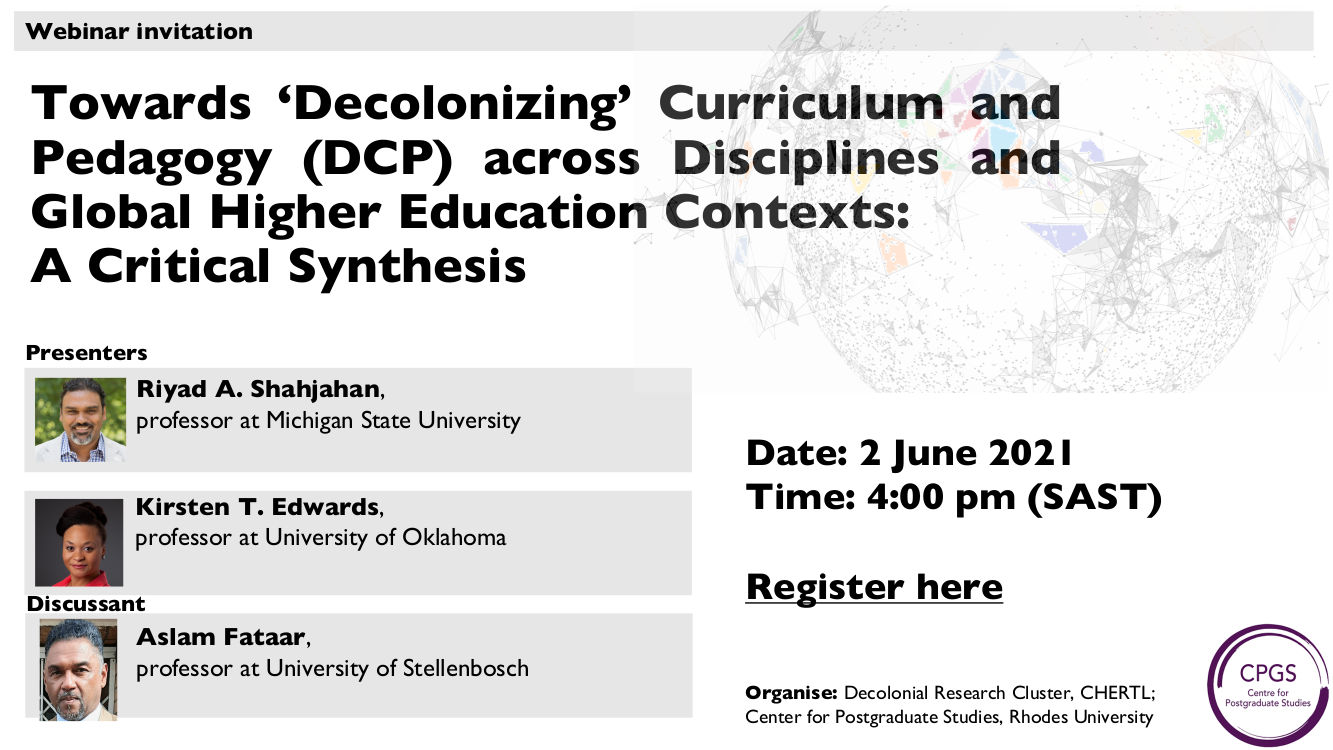
Dear colleagues
We are pleased to invite you to the webinar: Towards ‘Decolonizing’ Curriculum and Pedagogy (DCP) across Disciplines and Global Higher Education Contexts: A Critical Synthesis
Date: June 2nd
Time: 4:00 pm SAST
In this event, professors Riyad A.Shahjahan (Michigan State University) and Kirsten Edwards (Oklahoma) will present their findings on a literature review conducted to more 207 articles and pieces on decolonization of curriculum and pedagogy (see abstract below). Professor Aslam Fataar (Stellenbosch University) will be the discussant of the paper.
This event is organized by the Decolonial Research Cluster, CHERTL; and the Centre for Postgraduate Studies (CPGS) at Rhodes University, South Africa.
Abstract
Drawing on the global interdisciplinary literature on decolonizing curriculum and pedagogy (DCP) in higher education, we critically examined the idea of decolonizing in the context of disciplines and universities around the world. Based on a critical analysis of 207 articles/book chapters published in English and centering a geopolitics of knowledge frame (Mignolo, 2003, 2011), we present three themes: a) decolonizing meaning/s b) actualizing decolonization, and c) challenges. We observed three major meanings of decolonization and four ways to actualize DCP that were driven by geographical, disciplinary, institutional and/or stakeholder contexts. We argue that, while there are similarities within the literature, ultimately the meanings, actualizations and challenges of DCP are contextual, which has political and epistemological consequences. We end by offering directions for educational research on DCP, revealing the possibility for a field or discipline of decolonial studies.
Authors of the paper
Riyad A. Shahjahan1, Annabelle L. Estera1, Kristen L. Surla1 and Kirsten T. Edwards2
1Department of Educational Administration, Michigan State University
2Department of Educational Leadership and Policy Studies, University of Oklahoma